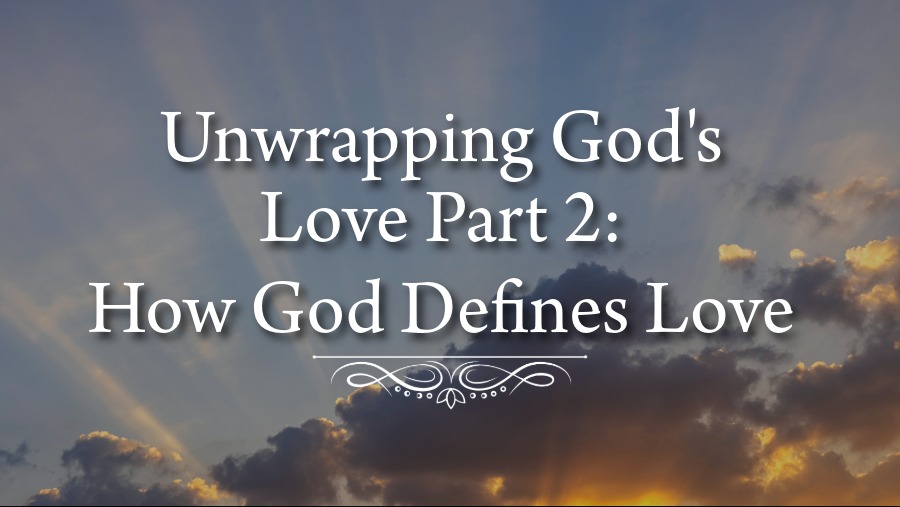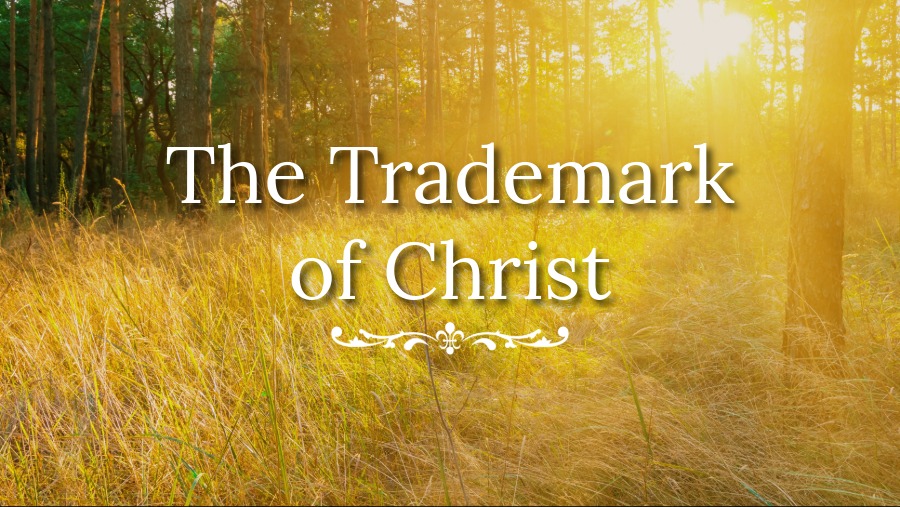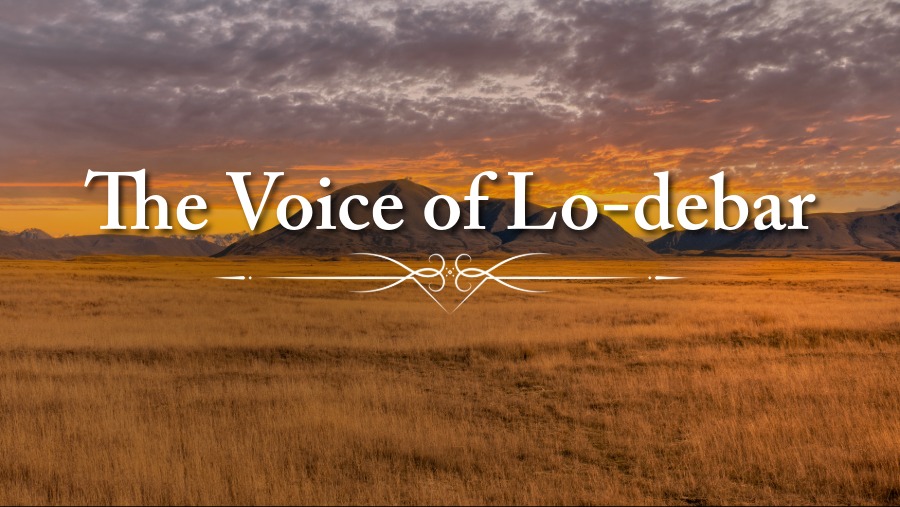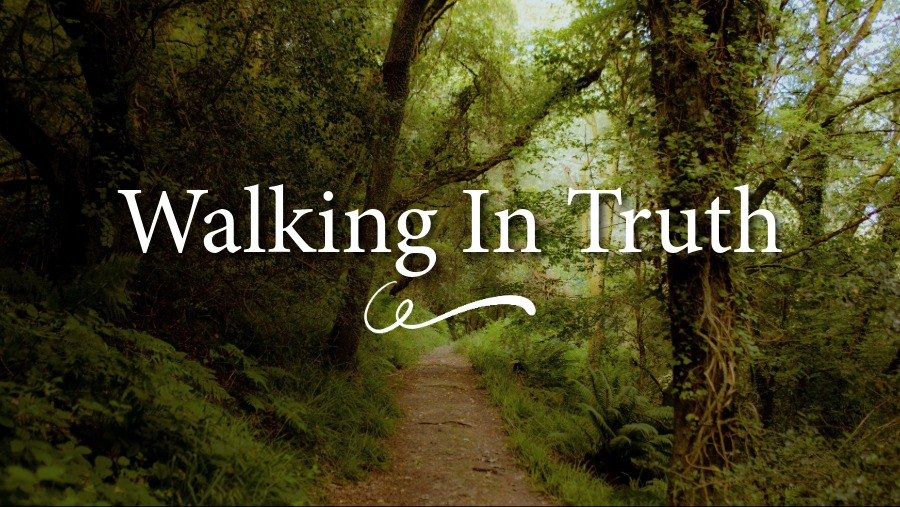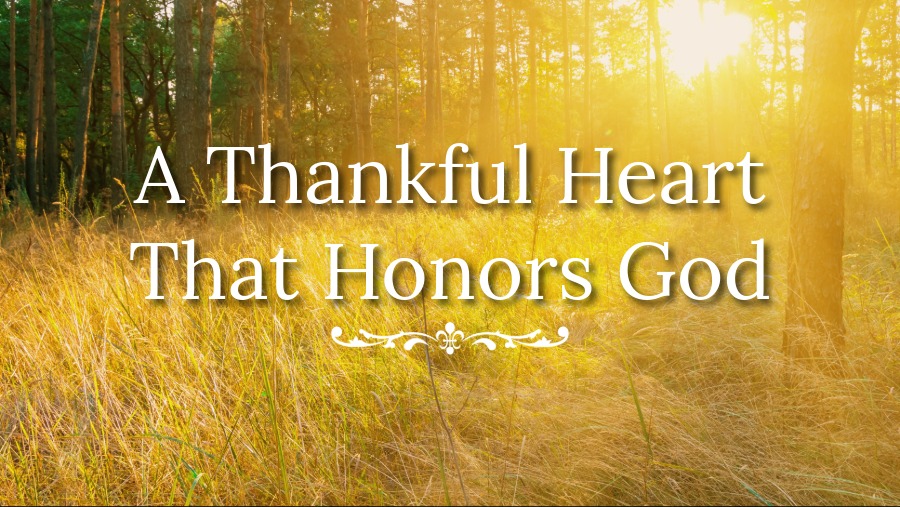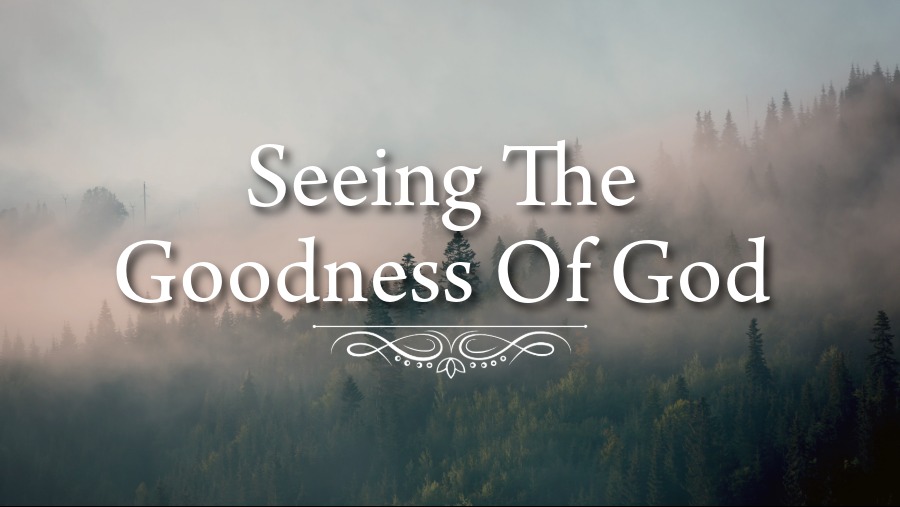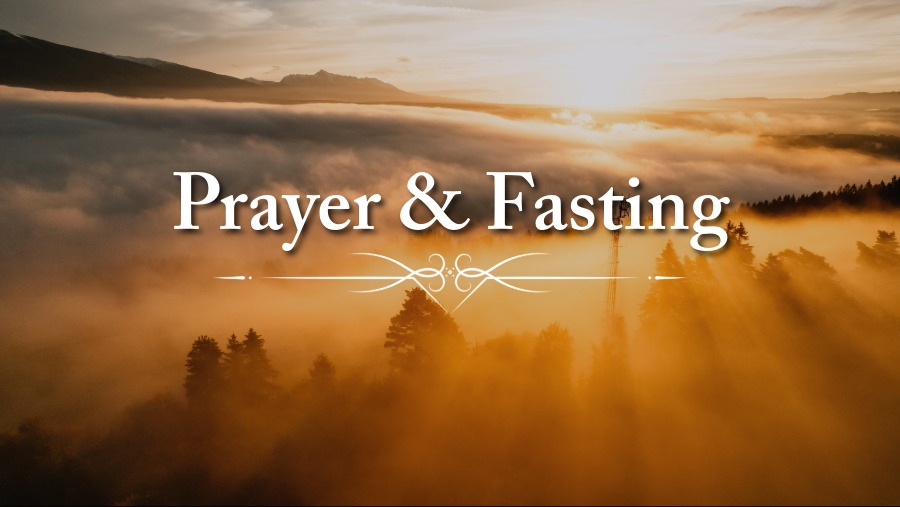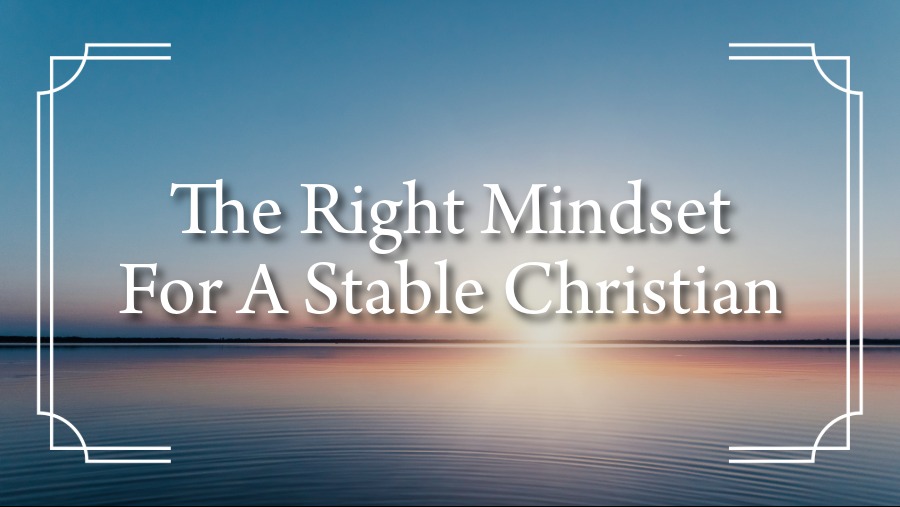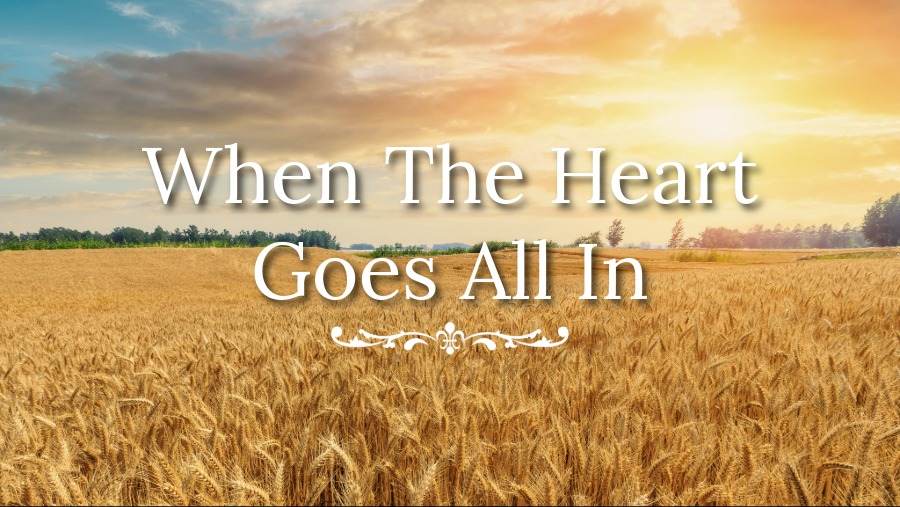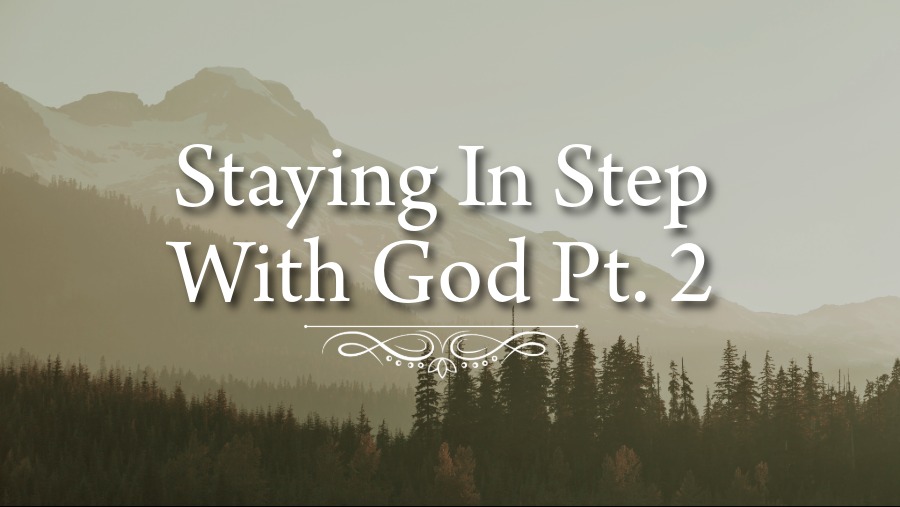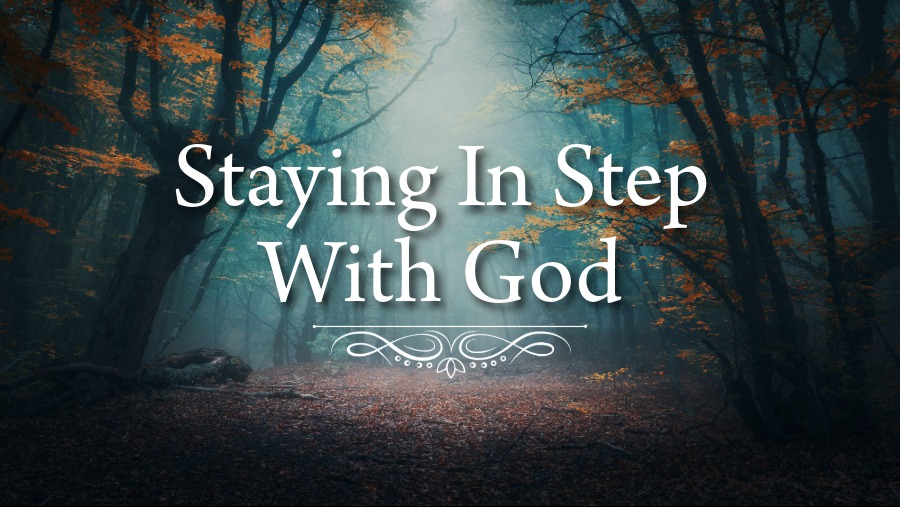
Staying In Step With God Pt. 2
1) The Question That Locates Us (Amos 3:3)
The sermon centers on God’s rhetorical question: “Can two walk together, except they be agreed?” The pastor stresses that God does not ask for information; He asks to locate His people—to make them conscious of their position relative to Him. While the verse is often applied to human relationships, the immediate focus here is our relationship with God. Agreement (“be agreed”) carries the sense of purposeful linkage—an appointed, jointly held aim that binds two travelers to the same pace, path, and priorities.
Two vivid illustrations underscore the danger of falling out of step:
- Rushing ahead: If we surge forward on our own timetable, we may veer where God is not going—or collide with hazards we would have avoided had we stayed beside Him.
- Lagging behind: If we delay where God is moving, we forfeit the near help of His presence; His protection and provision are found with Him, not apart from Him.
The practical implication: believers often push where God is delaying and delay where God is pushing. The problem is not that God abandons; rather, we stop walking with Him.
2) Amos’s Context: Religion Without Relationship (Amos 1–3, overview)
Amos, an ordinary farmer called as a prophet, addresses a prosperous Israel. They were performing religious practices—sacrifices, offerings, and outward piety—yet their hearts were distant. Their worship had become mechanical, a checklist that comforted self but did not cultivate relationship. God first indicts the surrounding nations, then turns the spotlight on His own people. Israel’s presumption—“We are God’s people; therefore all is well”—masked the deeper issue: they were traveling, but not with God.
3) How We Drift Out of Step
The pastor outlines several patterns that disrupt our pace with God:
- Confusing privilege with permission (Amos 3:2). Being chosen by God doesn’t authorize self-willed living. “You only have I known” is a word of intimacy and accountability, not license.
- Ignoring God’s warnings (Amos 3:4–6). Like the roar of a lion or the rattle of a snake, God sends audible “alerts” through providence and conscience. If we’re too far ahead or behind, we may miss the warning.
- Resisting God’s messengers (Amos 3:7). God speaks through His Word and those who faithfully teach it. Dismissing their counsel severs us from timely alignment with God’s will.
- Redefining worship to center self (Amos 4:4–5). Israel imported practices “they liked,” even mixing leaven—a symbol of impurity—into thanksgiving. Worship drifted from adoring God to gratifying taste, converting holy assembly into self-affirmation.
These drifts can coexist with activity: services attended, songs sung, boxes checked. But the journey is no longer a companionship; it becomes a solo itinerary decorated with religious souvenirs.
4) Four Commitments for Walking in Step
A) Remember Whose You Are (Amos 3:2; 1 Peter 2, referenced)
“You only have I known”—God’s covenant language emphasizes belonging. If you have embraced Christ’s sacrifice, you are not your own; you were bought with a price. This identity reorders desires and decisions: what I want yields to what He wants. The pastor stresses that family, ministry, possessions, and even our church are God’s, entrusted for His purposes. Living like proprietors rather than stewards dislocates us from His pace.
B) Respond Quickly to His Voice (Amos 3:8)
“The lion hath roared; who will not fear?” To “fear” here is reverent responsiveness—when God speaks, we don’t debate; we obey. The pastor ties this to Jesus’ teaching that His sheep hear His voice and follow. Respect for God is measurable: it’s seen in how promptly and plainly we act on what He says, not in how much inspirational content we consume.
C) Realign When He Corrects (Amos 4:6–11)
God’s repeated refrain—“yet have ye not returned unto me”—reveals correction as redirection, not rejection. Droughts, crop blight, lack, and hardship functioned as disciplinary road signs meant to turn Israel back. The pastor laments how often believers interpret discipline as God’s dismissal and grow bitter. In truth, humble return is the doorway back to walking beside Him: “Draw nigh to God, and He will draw nigh to you.” Pride lengthens distance; repentance shortens it.
D) Reverence His Presence Daily (Amos 4:12–13)
“Prepare to meet thy God” brings ultimate accountability into present practice. We will stand before the One who “formeth the mountains…createth the wind…declares the thoughts of man.” Framed by that meeting, worship ceases to be casual, prayer ceases to be perfunctory, and Scripture ceases to be merely informational. The pastor uses an investment analogy: if someone entrusted you with ten million dollars, you would steward it intentionally and report diligently. God has entrusted us with life in Christ—infinitely greater—and will ask what we did with it. Living under that reality fuels zeal, purpose, and holy care in everyday choices.
5) From Mechanics to Relationship
The sermon repeatedly contrasts mechanics with relationship:
- Mechanics read the Bible as a self-help manual; relationship listens for the Speaker and aims to please Him.
- Mechanics pray to tick a box; relationship prays to commune—throughout the day, in gratitude, need, and dependence.
- Mechanics chase worship that we “like”; relationship brings worship God deserves, even when it confronts or reshapes our preferences.
Anecdotes (walking pace with a child, a spouse driving off while you wait for coffee, a rattlesnake’s warning rattle) concretize the point: distance—whether born of hurry or hesitation—breaks companionship. The call is to intentional, consistent time with God (even starting with five minutes each for Word and prayer), allowing the Holy Spirit to help when attention wanders or words fail. Small, faithful steps build a lived pace with God.
6) The Final Frame: Meeting God Shapes Today
The closing appeal returns to Amos 4:12. Believers will hear, “Well done, good and faithful servant,” yet even commendation may include sober truth about missed obediences and neglected opportunities. The aim is not guilt but Spirit-born conviction that elevates the weight of worship, Scripture, prayer, giving, serving, and daily decisions. We are not approaching a dead ritual but the living God—the One whose Son’s blood purchased us. Seen that way, walking with Him is not a burdensome pace-setter but the safest, most satisfying cadence of life.



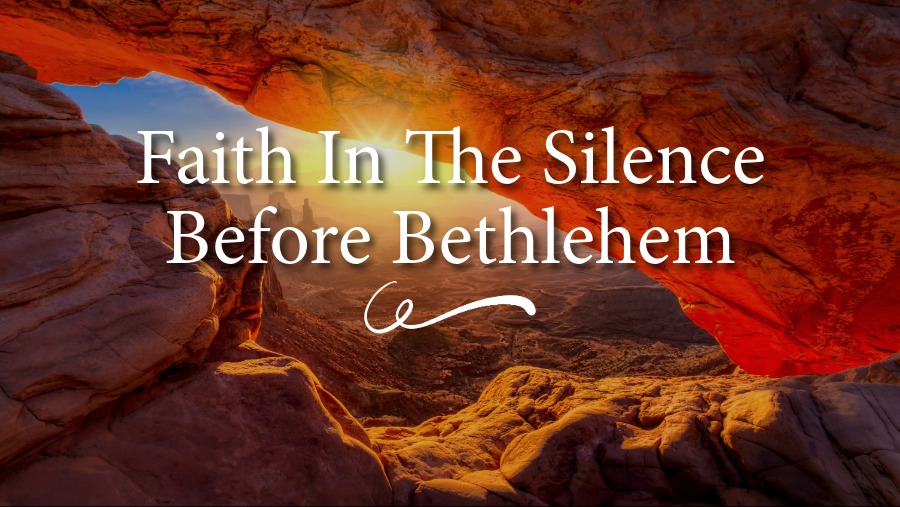
.jpeg)
